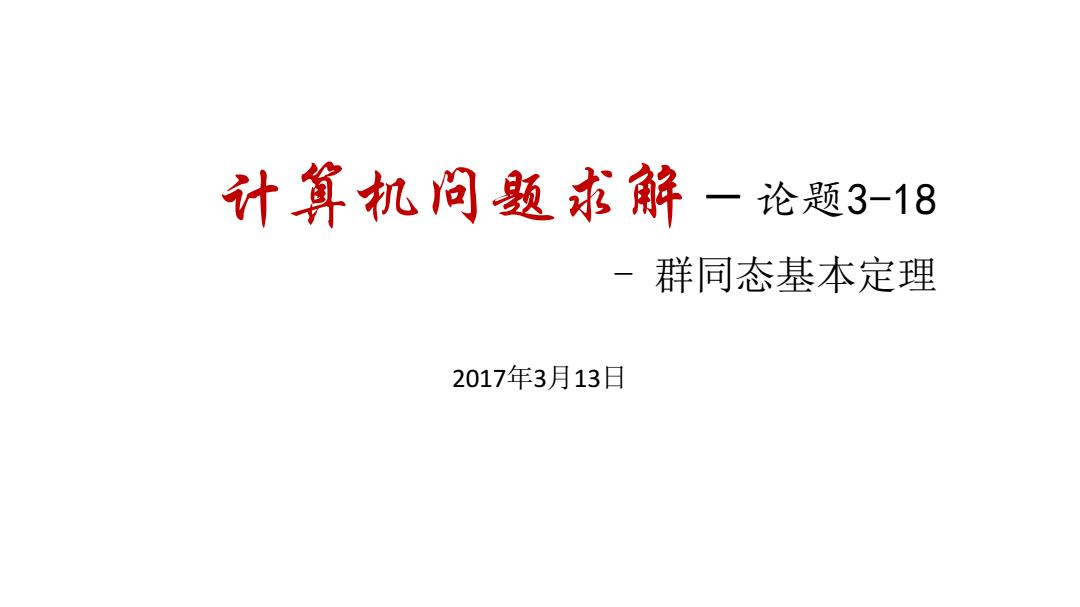
计算机问题龙解一论题3-18 群同态基本定理 2017年3月13日
计算机问题求解 – 论题3-18 - 群同态基本定理 2017年3月13日

问题1:我们为什么定义这个函数是“同构”? iso-morphology Two groups (G,)and (H,o)are isomorphic if there exists a one-to-one and onto map GH such that the group operation is preserved;that is, (a·b)=(a)o(b) 同构其实可在 for all a and b in G.If G is isomorphic to H is called an isomorphism. 任何代数结构 (系统)上讨论
问题1:我们为什么定义这个函数是“同构” ? iso-morphology 同构其实可在 任何代数结构 (系统)上讨论
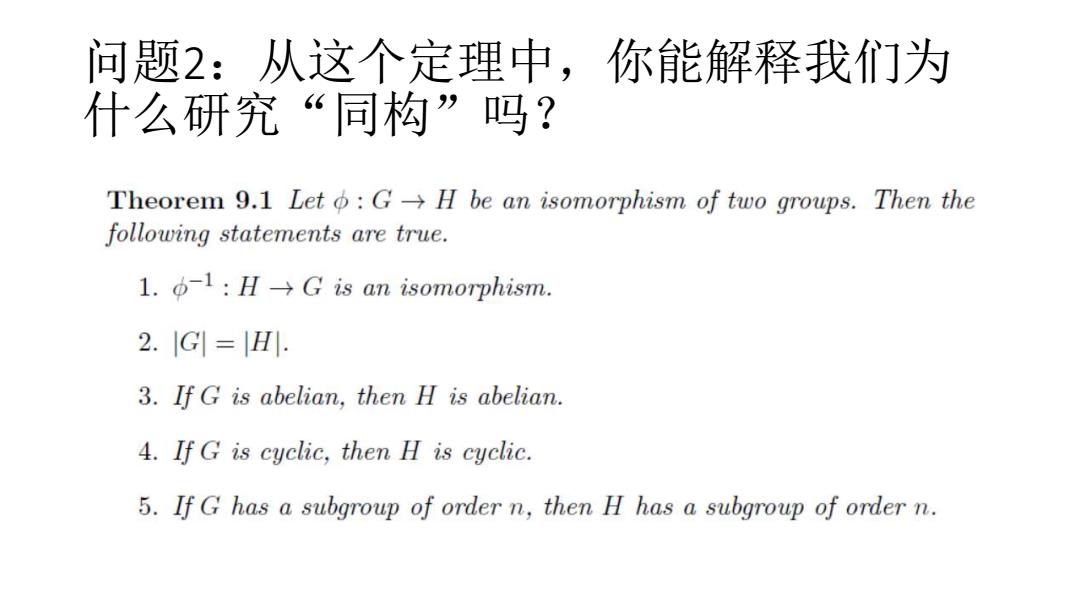
问题2:从这个定理中,你能解释我们为 什么研究“同构”吗? Theorem 9.1 Let G-H be an isomorphism of two groups.Then the following statements are true. 1.-1:HG is an isomorphism. 2.G=H. 3.If G is abelian,then H is abelian. 4.If G is cyclic,then H is cyclic. 5.If G has a subgroup of order n,then H has a subgroup of order n
问题2:从这个定理中,你能解释我们为 什么研究“同构”吗?
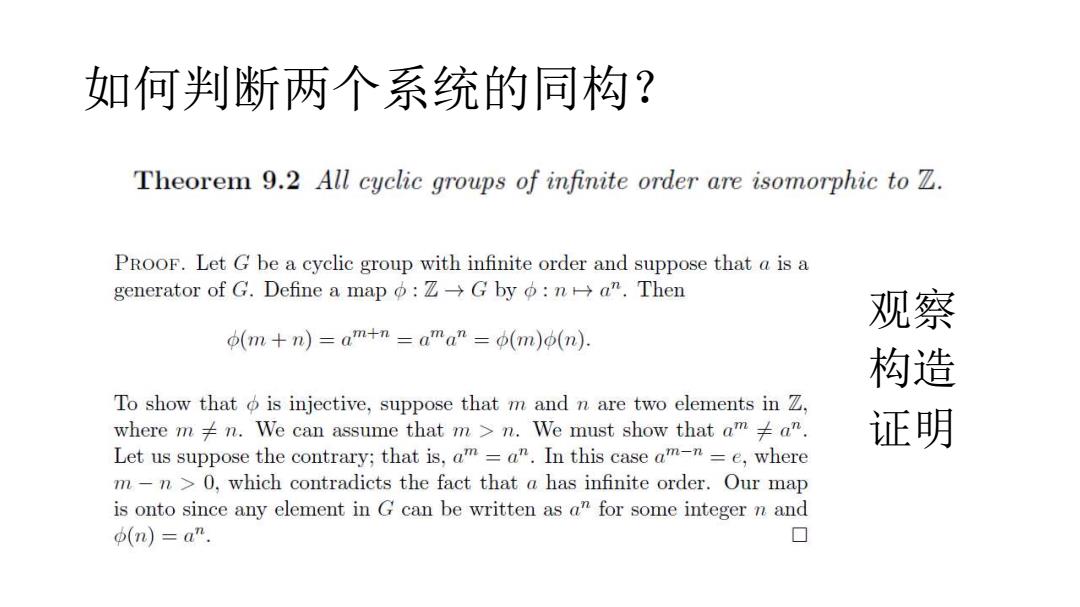
如何判断两个系统的同构? Theorem 9.2 All cyclic groups of infinite order are isomorphic to Z. PRoOF.Let G be a cyclic group with infinite order and suppose that a is a generator of G.Define a map:ZG byo:n a".Then 观察 o(m+n)amtn a"a"o(m)o(n). 构造 To show that o is injective,suppose that m and n are two elements in Z, where m n.We can assume that m >n.We must show that am a". 证明 Let us suppose the contrary;that is,am=a".In this case am-=e,where m-n >0,which contradicts the fact that a has infinite order.Our map is onto since any element in G can be written as an for some integer n and o(n)a". ▣
观察 构造 证明 如何判断两个系统的同构?
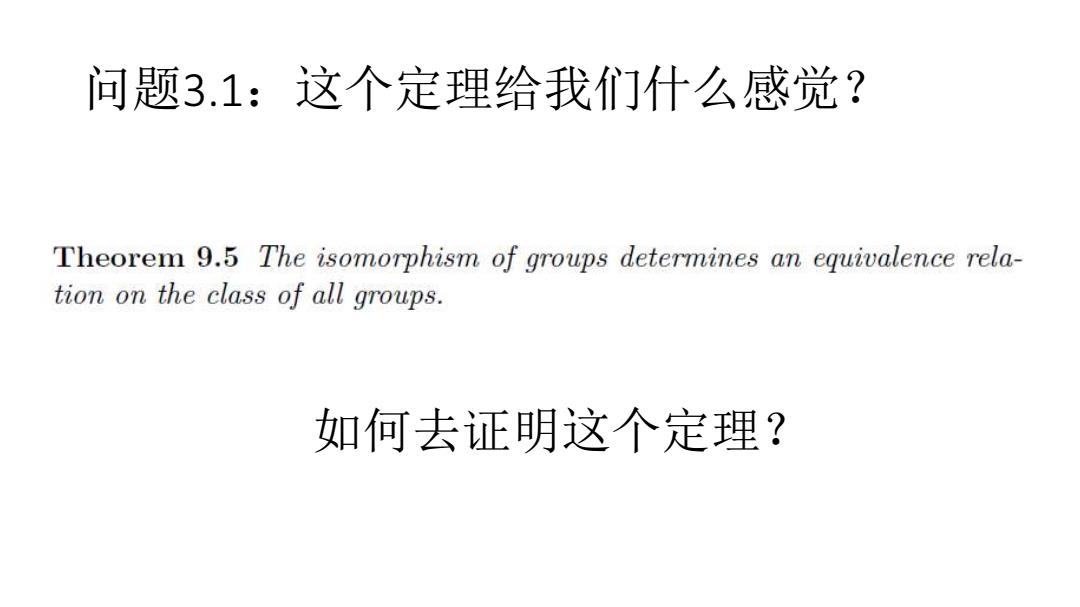
问题3.1:这个定理给我们什么感觉? Theorem 9.5 The isomorphism of groups determines an equivalence rela- tion on the class of all groups. 如何去证明这个定理?
问题3.1:这个定理给我们什么感觉? 如何去证明这个定理?
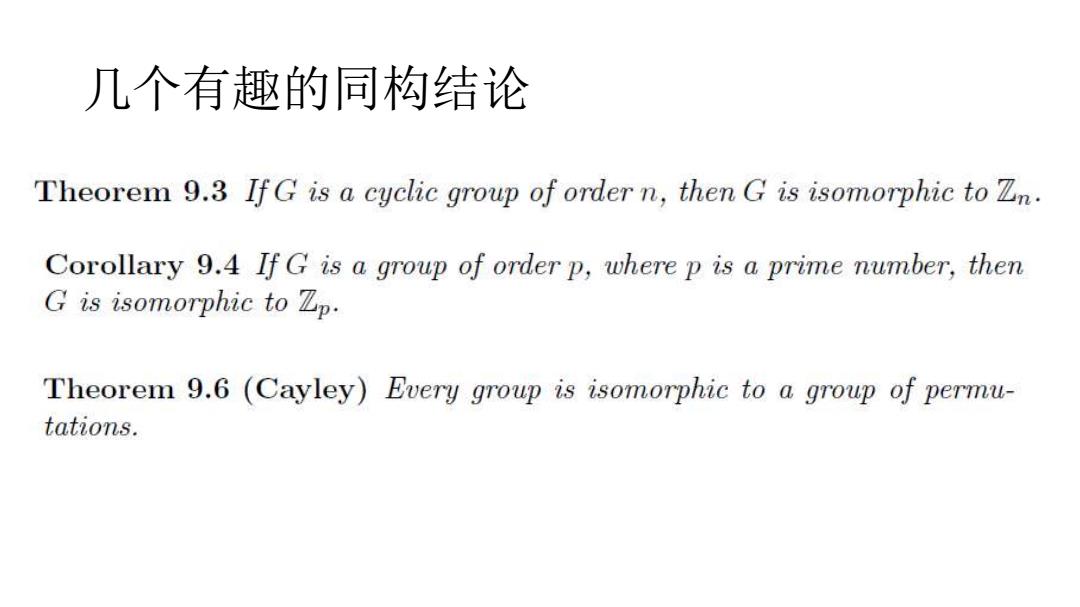
几个有趣的同构结论 Theorem 9.3 If G is a cyclic group of order n,then G is isomorphic to Zn. Corollary 9.4 If G is a group of order p,where p is a prime number,then G is isomorphic to Zp. Theorem 9.6(Cayley)Every group is isomorphic to a group of permu- tations
几个有趣的同构结论

Carley定理的证明 Theorem 9.6(Cayley)Every group is isomorphic to a group of permu- tations. ·从任意一个群G出发,构造一个置换群G’: ·由置换函数组成的群 G={g:g∈G} ·由G出发,构造置换函数,置换函数的个数和群G相同 入g(a)=ga. ·构造群G到置换群G’的同构函数 p:g→入g ·证明这个函数的双射 ·证明这个函数是G到G’的同构
Carley定理的证明 • 从任意一个群G出发,构造一个置换群G’: • 由置换函数组成的群 • 由G出发,构造置换函数,置换函数的个数和群G相同 • 构造群G到置换群G’的同构函数 • 证明这个函数的双射 • 证明这个函数是G到G’的同构
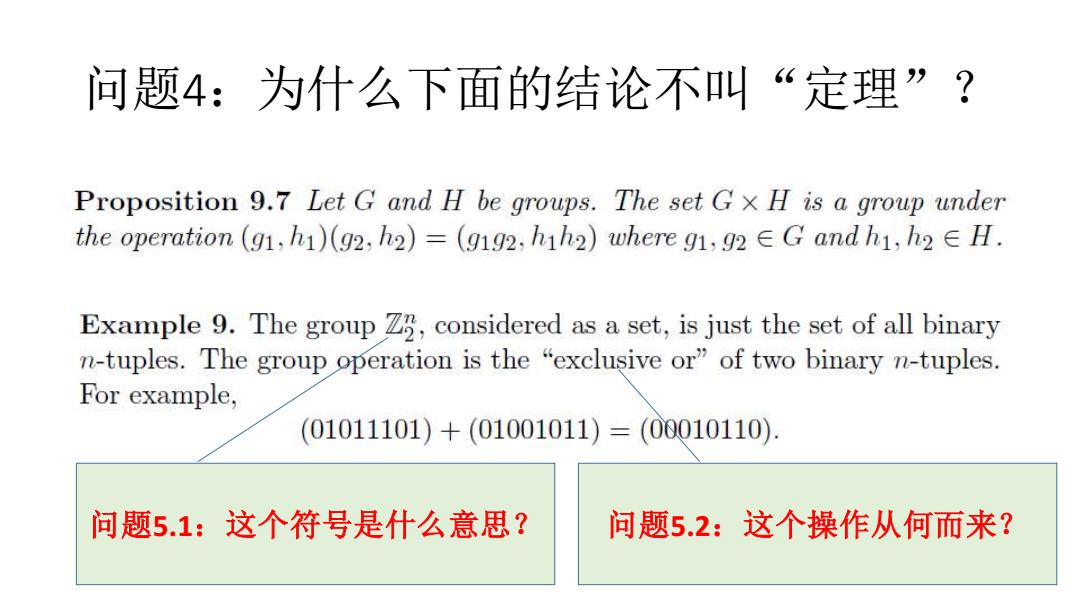
问题4:为什么下面的结论不叫“定理”? Proposition 9.7 Let G and H be groups.The set Gx H is a group under the operation (g1,h1)(g2,h2)=(91g2,hih2)where g1,92 EG and h1,h2EH. Example 9.The group Z2,considered as a set,is just the set of all binary n-tuples.The group operation is the "exclusive or"of two binary n-tuples. For example, (01011101)+(01001011)=(00010110) 问题5.1:这个符号是什么意思? 问题5.2:这个操作从何而来?
问题4:为什么下面的结论不叫“定理”? 问题5.1:这个符号是什么意思? 问题5.2:这个操作从何而来?
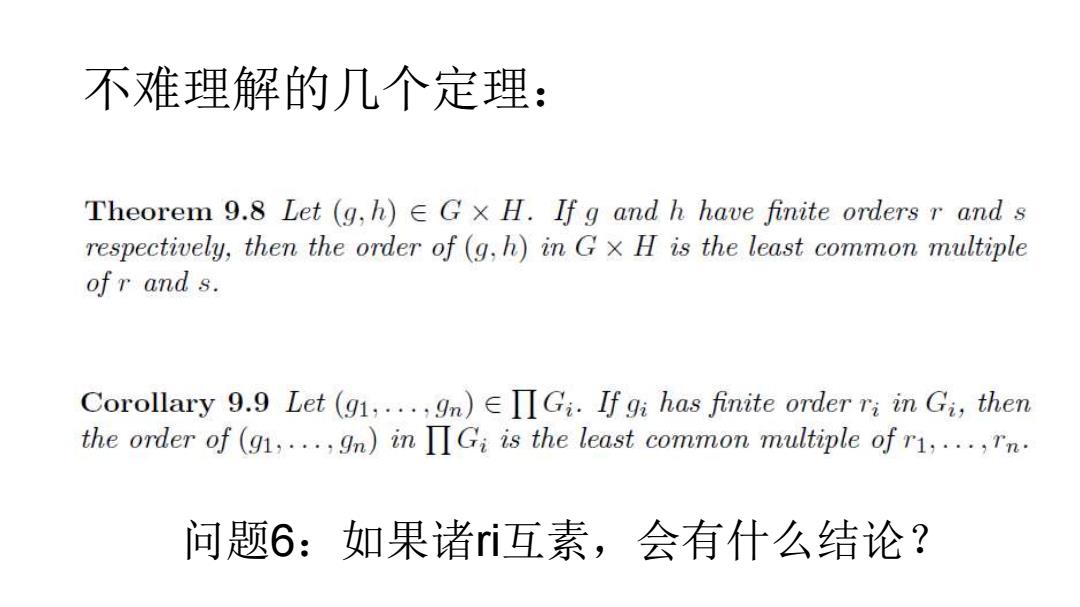
不难理解的几个定理: Theorem 9.8 Let (g,h)G x H.If g and h have finite orders r and s respectively,then the order of (g,h)in Gx H is the least common multiple of r and s. Corollary 9.9 Let (91,...,9n)EIIGi.If gi has finite order ri in Gi,then the order of (g,...,gn)in IIGi is the least common multiple of ri,...,rn. 问题6:如果诸ri互素,会有什么结论?
不难理解的几个定理: 问题6:如果诸ri互素,会有什么结论?

以下几个结论,余味袅袅 Theorem 9.10 The group Zm x Zn is isomorphic to Zmn if and only if gcd(m,n)=1. Corollary 9.11 Let n1,...,nk be positive integers.Then k ΠZn,≥Zn1mk i=1 if and only if gcd(ni,nj)=1 for if j. Corollary 9.12 If m=p…pt, where the pis are distinct primes,then Zm¥Zp71X…XZp
以下几个结论,余味袅袅